UP TO THE MINUTE
So many choices, so little time
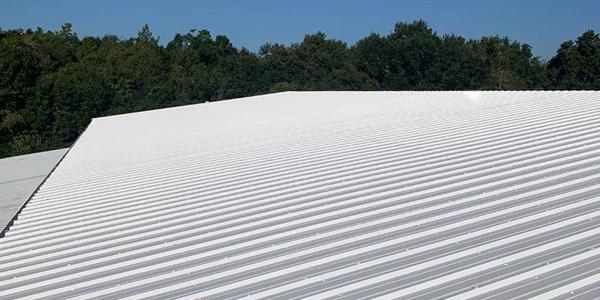
By Corey Construction.
Whether looking for a commercial or multifamily property, look no further to find the product that will ensure your roofing satisfaction.
From the impressive durability of TPO and PVC roofs to the timeless appeal of shingle and tile options, each roofing material offers their own unique advantages and challenges. Whether you're seeking energy efficiency, aesthetic versatility or long-term resilience, understanding the nuances of these roofing types is crucial. Dive into this comprehensive guide with us at Corey Construction to discover which roofing solution is the perfect fit for your commercial or multifamily property, ensuring not only protection but also enhanced value and performance.
TPO and PVC roofs
TPO (thermoplastic olefin) and PVC (polyvinyl chloride) roofs are highly sought after by commercial building owners for their exceptional durability and energy efficiency. These roofing options are known for their reflective properties, which help reduce heat absorption and ultimately lower cooling costs for the building. Additionally, TPO roofs and PVC roofs boast excellent resistance to chemicals, punctures and harmful UV rays, providing long-lasting protection against various environmental factors.
Moreover, their lightweight composition makes them a practical choice for commercial buildings, as they are easy to install and require minimal labor and material costs. However, it is worth noting that the initial cost of TPO and PVC roofs may be higher compared to other roof types. Despite their durability, these roofing materials may be more susceptible to tears or punctures if not properly installed or maintained, underscoring the importance of regular upkeep to ensure their longevity and performance.
In conclusion, the durability, energy efficiency and ease of installation of TPO and PVC roofs make them a valuable investment for commercial building owners looking for reliable and cost-effective roofing solutions. By taking proper care and maintenance measures, these roofing options can provide long-term benefits and savings for the building and its occupants.
Shingle roofs
Shingle roofs have remained a top choice for commercial buildings not just for their affordability and easy installation, but also for their versatility in design. With a wide array of colors and styles available, shingle roofs can be customized to seamlessly blend with the overall aesthetic of the building, enhancing its curb appeal.
While shingle roofs are relatively low maintenance, requiring only periodic inspections and repairs, it is important to note that they may not be as durable as some other roof types. This means that they may need to be replaced more frequently than, say, tile or metal roofs. Additionally, shingle roofs are more susceptible to damage from high winds or hail, which could potentially lead to costly repairs if not addressed promptly. Despite these drawbacks, the affordability and customization options of shingle roofs continue to make them a popular choice for many commercial building owners.
Tile roofs
Despite their higher cost and the need for additional structural support due to their weight, tile roofs are a popular choice for commercial buildings due to their exceptional durability and longevity. With the ability to withstand extreme weather conditions such as high winds, heavy rain and hail, tile roofs provide reliable protection for the building and its occupants.
Moreover, the fire-resistant properties of tile roofs offer added peace of mind for building owners, while also providing excellent insulation that can help regulate indoor temperatures and reduce energy costs. Although regular maintenance is required, including cleaning and replacing damaged tiles, the long-term benefits of investing in a tile roof far outweigh the potential drawbacks.
In conclusion, the resilience and longevity of tile roofs make them a valuable investment for commercial buildings looking for reliable protection and energy efficiency. Their ability to withstand harsh weather conditions and provide superior insulation make them a top choice for building owners seeking durable and long-lasting roofing solutions.
Metal roofs
Metal roofs are a popular choice for commercial buildings due to their numerous advantages. In addition to their exceptional durability, energy efficiency and low maintenance requirements, metal roofs offer a long lifespan of 50 years or more. Their resistance to fire, rot and insect damage provides reliable protection for the building and its occupants, giving building owners peace of mind.
Furthermore, the lightweight nature of metal roofs not only reduces the strain on the building's structure but also makes them a practical choice for various architectural designs. Their ability to reflect sunlight helps keep the building cool, ultimately lowering energy costs and improving overall comfort for those inside.
Despite these benefits, it is important to note that metal roofs may come with a higher upfront cost compared to other roof types. Additionally, they can be noisy during rain or hailstorms, which could be a consideration for buildings in areas prone to severe weather. Regular inspections for signs of corrosion or damage are crucial to ensure the longevity and performance of metal roofs, emphasizing the importance of proper maintenance practices.
Overall, the advantages of metal roofs outweigh the potential drawbacks, making them a valuable investment for commercial buildings looking for a durable, energy-efficient and low-maintenance roofing solution.
Modified bitumen roofs
Modified bitumen roofs are a popular choice for commercial buildings with low-slope or flat roofs due to their exceptional durability and cost-effectiveness. Made from asphalt and reinforced with fiberglass or polyester, these roofs provide added strength to withstand harsh weather conditions and extreme temperatures. Their resistance to UV rays ensures long-lasting protection for the building, making them a reliable option for commercial property owners.
One of the key advantages of modified bitumen roofs is their ease of installation and repair, saving both time and money for building owners. However, it is crucial to note that these roofs may be more susceptible to punctures and leaks if not properly maintained. Regular inspections and maintenance can help prevent these issues and ensure the longevity of the roof.
In addition to maintenance, modified bitumen roofs may also require additional insulation to meet energy efficiency standards. Proper insulation not only helps regulate indoor temperatures but also reduces energy costs, making it a worthwhile investment for building owners in the long run. By addressing these considerations, commercial buildings can benefit from the durability, cost-effectiveness and energy efficiency of modified bitumen roofs.
Choosing the perfect roofing system for your commercial or multifamily property
Choosing the perfect roofing system for your commercial or industrial property requires careful consideration of various factors. Here are some key points to keep in mind:
- Evaluate the specific needs of your property: Consider the climate, building usage and any specific requirements or regulations that may apply to your property.
- Consult with a roofing professional: It is essential to work with a qualified roofing professional who can assess your property, provide expert advice and help you choose the best roofing system.
- Consider long-term costs: While upfront costs are important, it is also crucial to consider the long-term costs associated with each roofing system. This includes maintenance, repairs and potential energy savings.
- Review warranties and guarantees: Look for roofing systems that come with comprehensive warranties and guarantees to ensure you are protected in case of any issues.
By considering these factors and working with a roofing professional, you can choose the perfect roofing system that will provide the best protection, durability and performance for your commercial or industrial property.
Choosing the right commercial roofing contractor is every bit as important as choosing the right roof type for your commercial or multifamily property. Corey Construction has been in business since 1999 and has consistently been named one of the top 10 roofing companies in the US. We are licensed, insured and come with some of the best warranties in the business. Enjoy peace of mind knowing you will have a quality roof; exceptional customer service and we have an experienced team to guide you throughout the entire roof installation process.
Original article source: Corey Construction
Learn more about Corey Construction in their Coffee Shop Directory or visit coreyconstruction.net.
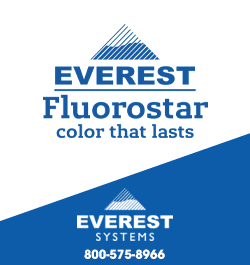

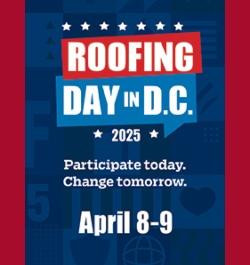







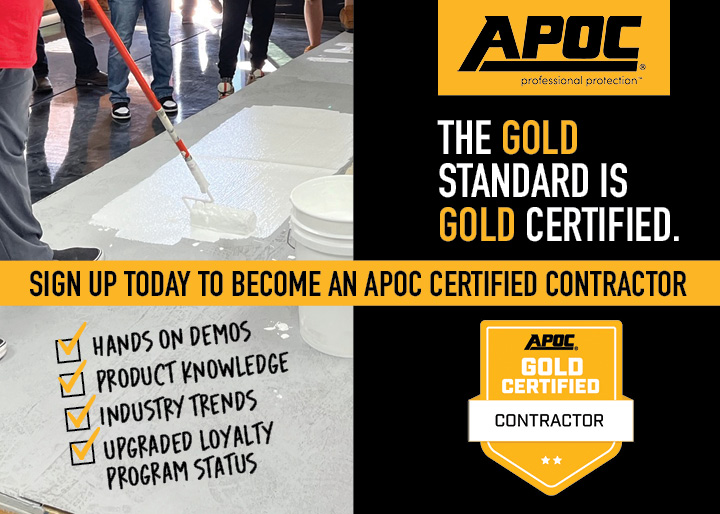

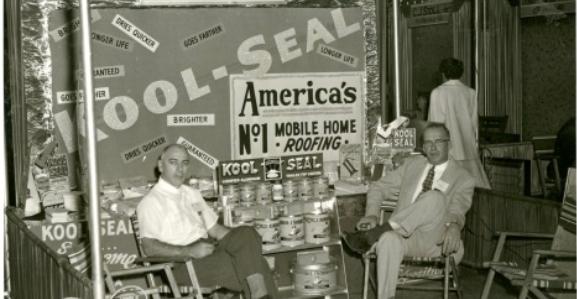



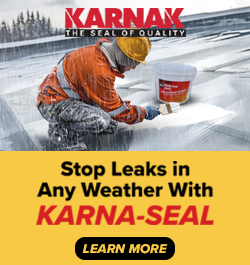

Comments
Leave a Reply
Have an account? Login to leave a comment!
Sign In